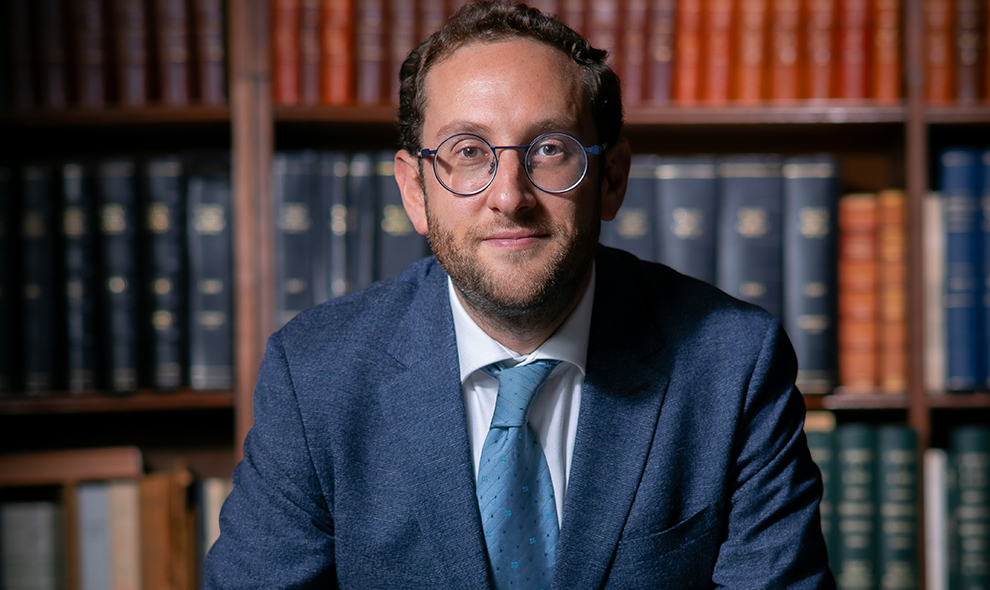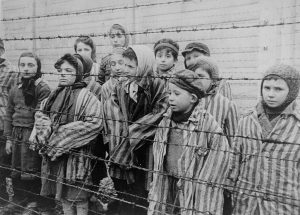He discusses the challenges he faces as a member of the Jewish community in the legal workspace, as well as how the government in Belgium handled the COVID-19 pandemic, revealing whether his jurisdiction is becoming more progressive or regressive.
As an Orthodox Jewish lawyer in Antwerp, which is rare to find, what challenges do you face?
In the last few decades, the Belgian people have grown to demonstrate a type of hidden “dégoût” [disgust] of everything that has any association with religion. When they initially meet you, they obviously say that they respect you and have no problem with religion at all, but once it interferes with their needs or habits, it does become clear that some do not understand nor respect it at all. My three-year internship was done at a law firm that had no previous experience working with other Jewish people, resulting in me being on the receiving end of remarks, comments and resistance when it came to my persistence in keeping Jewish Laws, such as eating strictly kosher food and keeping the Sabbath (which is from sunset on Friday until Saturday night).
Now that I work independently, I don’t face these challenges as often. Courts are very understanding when a case-hearing needs to be postponed if it happens to be on a Jewish Holiday and also my fellow lawyers almost never make a problem out of it.
Do you face unique cases, based on your background? How does this place you in good stead when working on such cases?
I do work on cases involving Jewish victims of antisemitism, which sadly still happens quite often. Those cases are, of course, very personal because I mostly know the victims from my private life, it can happen to me too (and it has done), and because it’s my mission to get Belgian lawmakers to modernise Belgian law against Racism and Xenophobia as it is dated from 30 July 1981 and thus is completely outdated. It is extremely difficult to get convictions based on this law, most certainly when faced by antisemitism on social media. There is a sense of impunity out there and I’m determined to fight this.
A Belgian ban on the Muslim and Jewish ways of ritually slaughtering animals went into effect on New Year’s Day; what backlash did this cause with citizens?
This ban on ritual slaughter has indeed been in effect since January 1st 2019 in Flandres and the backlash is enormous. Kosher meat became rare and thus very expensive. It needs to be imported from countries without such a ban, which takes time and costs much more. It feels like discrimination based on religion comparing to non-Jews, which makes the Jewish community feel very uncomfortable and unwanted.
Furthermore, the plan the newly formed government came out with for the next few years doesn’t mention anything about the fight against antisemitism and mentions the withdrawal of the army from the Jewish neighbourhoods.
How does this, in your opinion, relate to article 9 of the Convention for the Protection of Human Rights and Fundamental Freedoms? Was this ruling a step in the right or wrong direction?
The impression I have is that in Belgium this Human Right to practice Religion has become completely subordinate to all other Rights. The Belgian people prefer that any religion should be practised strictly at home and shouldn’t interfere with any other right, which then always precedes. The fact that the method of ritual slaughter has been proven painless for the animal doesn’t make any difference to them. When I enter into a discussion with a non-Jew and ask about the animal right’s of a lobster that is put in boiling hot water alive (!) before being consumed, the sudden silence is deafening. It gives me a sad feeling that all this is not about the rights of the animals but the rebellion against anything related to religion.
The ban of ritual slaughter was, of course, challenged at the Belgian Constitutional Court, which passed the question to the European Court of Justice. Advice was recently given by the Avocat-General against the ban, which of course gives me high hopes that the Court will rule in favour of lifting the ban.
Following on from controversial actions, how has your jurisdiction legally handled the COVID-19 pandemic?
Belgium not only faced the COVID-19 pandemic, but also simultaneously faced a constitutional crisis as there had been no definitive government ever since the elections in May 2019. From December 2019 until last month, the country was led by an interim-government on federal level led by Mrs Wilmes and her government who had to face the pandemic. In my opinion, it was one big mess with many unclear decisions that were overturned a short time later, which, naturally, made the Belgian population lose all trust in the people leading the country. That was even more so when the virologists started openly criticising the politicians for apparently not following their guidelines. The mayhem on a federal level in combination with the rising numbers of COVID-19 cases resulted in actions that were then taken on a lower, more local, level. The most intrusive one was the decision taken by the Governor of the Province of Antwerp to impose a curfew in the whole Province. Such a measure hadn’t been taken since World War II and, in my opinion, it was absolutely not a measure the Governor was competent to take. The measure was fought in court, but before it ever appeared for treatment at court, it was already lifted.
Are there any other changes on the horizon which you are keeping your eye on?
The newly formed government makes me worry a lot about the future of Belgium as a whole and also what the future holds for the Jewish community in Belgium. The government is formed by no less than seven smaller parties, leaving the biggest elected parties, the extreme-right and a party who strives for an independent Flanders, out and putting them in the opposition. So, this government is not made out of the parties the majority of Belgian citizens had voted for. There’s a big possibility that the next elections will cause a smashing victory for the extreme-right, which is very worrying.
Furthermore, the plan the newly formed government came out with for the next few years doesn’t mention anything about the fight against antisemitism and mentions the withdrawal of the army from the Jewish neighbourhoods. This is a clear sign that the safety of and the Rights for the Jews in Belgium isn’t a priority at all but on the contrary, is superfluous.
About David Braun
Please share with us your journey into law.
From when I was a kid I knew I wanted to become a lawyer as I loved speaking in public and always had a drive to end a discussion in my favour. After my studies at the University of Antwerp in 2010, I started my internship at a law firm specialised in tax law, which ended quite fast as the only thing I wanted was to get to court. After changing firms, I got to do my thing and became a pure litigator. In 2013 I competed in the yearly moot court competition organised by the Bar of Antwerp, which I won. I became third at the next stage, which was for the whole of Flandres.
Please share your specialisms in law.
With time and through experience I specialised in property law, going from cases for and against contractors, estate agents, tenants, co-owners in building, etc. It’s a very variated field of expertise, which keeps it interesting and challenging.
I also still focus on tax law, but only the litigation part and not the estate planning part. In other words, I fix the mess of others.
What motivates you most about your role?
What gives me my daily drive is that amazing feeling when pleading a case in court and then winning the case. Mostly the stakes for the clients are enormous and they are extremely nervous about the outcome. Sending them the e-mail that we got a positive judgment with the subsequent ecstatic phone conversation is very satisfactory and keeps me going for more and more.
David BRAUN
Advocaat
Lexlitis Antwerpen
Belgiëlei 187
B-2018 ANTWERPEN
Tel. +32/(0)3/231.14.44
Fax +32/(0)3/231.72.32
Cell +32/(0)473/250.300
braun@lexlitis.eu
www.lexlitis.eu
@Antwerp.Lawyer





















